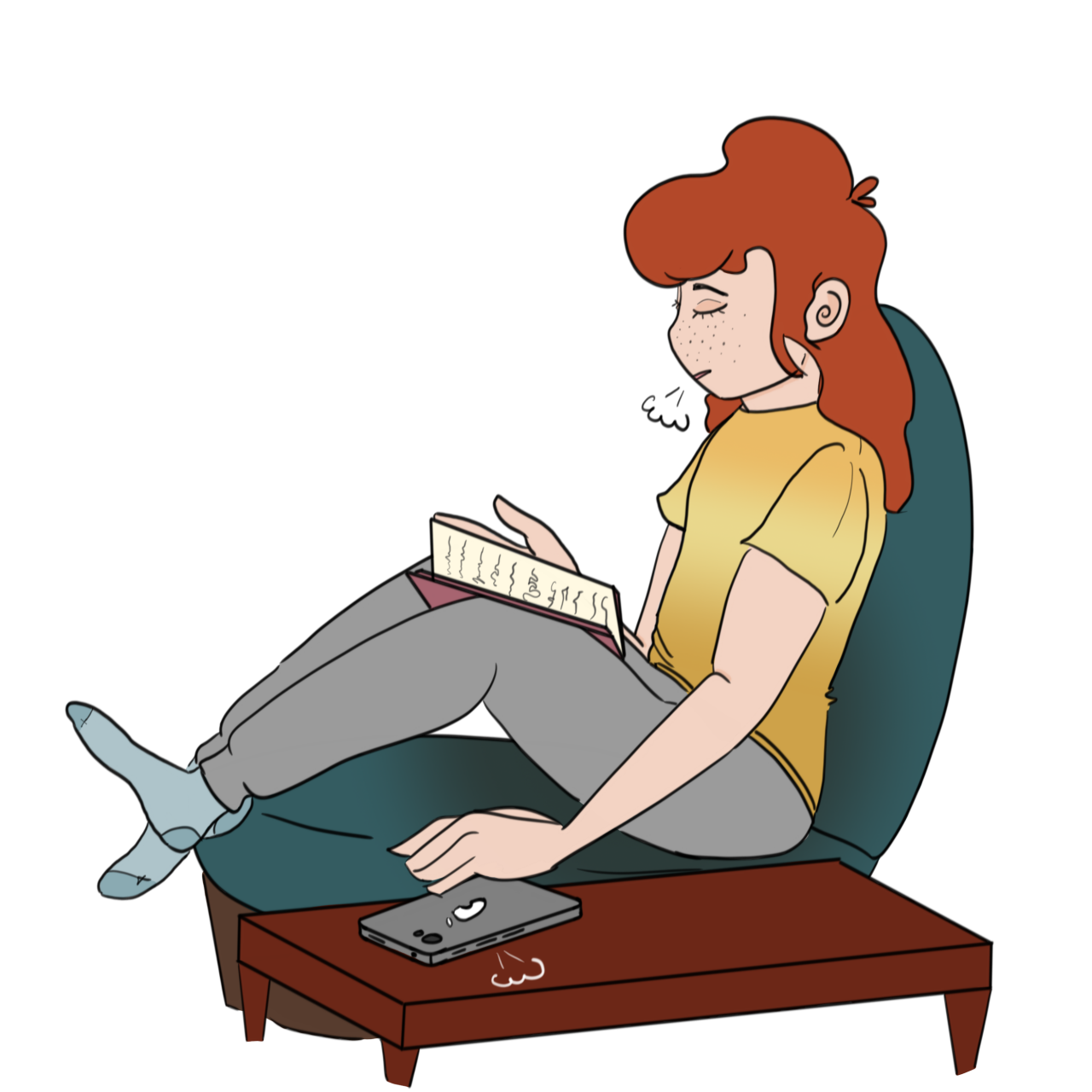illustration by Gracen Hoyle
One of the things I miss most about living on campus is spending most of my time in proximity to others. Having a roommate and suitemates, the ritual of getting ready in the mornings and winding down at night was often a shared experience that I now lack living remotely. With nowhere to go early in the morning or late at night, I now have more time to myself and a more routine way of starting and ending my day. Because every day has been less eventful during quarantine, I think that being more mindful of daily habits will be helpful for my health in the long run.
Morning Routine:
7 a.m. Wake up
1. Phone time: check time, weather, put on music
2. Brush teeth (controversial order to do before breakfast)
3. Wash face
4. Gua sha/face massage using face oils
5. Double cleanse
6. Moisturize and use SPF
7. Drink water
8. Eat breakfast
9. Drink coffee
10. Go for a walk/longboard
11. Make bed and clean at least three things in room
12. Make to-do list for the day
13. Zoom university
Night Routine (on a relaxed day without a lot of schoolwork):
1. Bath/shower
2. Do “yoga” (stretch a little)
3. Schoolwork
10 p.m. wind-down setting on phone (for social media), stop working
4. Brush teeth
5. Double cleanse
6. Night serums and moisturizer
7. Journal: (pre-made lists/topics make it easier to write every day)
8. Watch YouTube or Netflix or call a friend
11 p.m. sleep
I wish I could wake or sleep without being on my phone or laptop, but it seems impossible if I want to feel connected to others during this time. With hours of Zoom classes a day, eye strain is a real struggle for many students. It has become more apparent that I need hobbies that don’t involve screen time and to set daily limits on phone usage. For a month or so, I have also uninstalled Instagram and Twitter, which was a really beneficial reset for me. I thought I would feel more disconnected and “out of the know” by doing this, but I replaced this loss of connection by more regularly calling friends and family. Instagram and Twitter have more or less become a political playground, so my feed is filled with either politics or art, so my receptivity to both has decreased with overstimulation of information. Taking a break from the constant “feeding” of visual information helped me feel less anxious or frustrated, and in the realm of creative expression, allowed me to rely more on my own creativity instead of relying too directly on inspiration from others.







